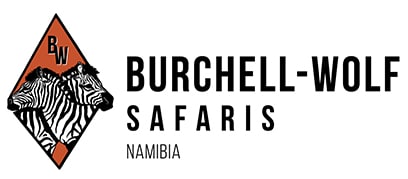Hunting Safari Namibia
Is a Namibia Hunting Safari Worth it?
If you're considering a Namibia Hunting Safari, you probably want to know exactly what to expect. The cost, the places to hunt, the ethics, and the economic impacts of Namibia hunting safari are just some of the questions you should ask yourself. Here are some tips for planning a Namibia hunting safari. Read on to find out! And be sure to read our ethics page for more information! But first, let's take a look at Namibia's infrastructure.
Prices
Prices of a Namibia Hunting Safari can vary. You may be surprised to learn that hunting in Namibia is relatively cheap. It is possible to hunt large animals, like elephants, lions, and even rhinos. And because the country is so diverse and has many different species, prices are usually quite reasonable. You may even be able to find a great deal on the same hunt in another country. The prices of a Namibia Hunting Safari depend on your preferences.
A Namibia hunting safari package will include all of the basic equipment you need, including a rifle, black powder, and bow. You will be accommodated in a camp that is equipped for the purpose. The safari camp, which is located in the foothills, has full facilities, including comfortable lodgings. Accommodations are in traditional thatched-roof buildings. These tents feature in-suite bathrooms, heaters, and fans. The permanent lodge will also have internet access.
Places to hunt
If you're looking for a safe and affordable hunting trip, Namibia is the place to go. It has been a top hunting destination for decades, and its conservation programs have preserved the country's wildlife for the benefit of all hunters. You'll find the likes of the Kudu, Giant Oryx, Springbok, Warthog, and many more species. Namibia has a friendly attitude toward hunters and hunting outfitters, and it has long been a popular destination for both new and seasoned African hunters.
Namibia Hunting Safari More Below
Although Namibia is an arid land, the terrain is relatively easy to navigate. The country is composed of a thorny savanna and large semi-desert plains. You can expect a pick-up at the Windhoek airport, then drive to your hunting concession. If you plan on traveling to the Caprivi Strip, however, you'll need to fly to a regional airport and then drive to your hunting concession.
Ethics
In response to recent criticisms of the industry, the Environment Minister of Namibia has announced plans to create stricter ethical and social guidelines for Namibia hunting safaris. The new measures will aim to protect endangered species while simultaneously protecting local communities. Currently, Namibia has a record of conservation success and is a global leader in community-based natural resource management (CBNRM).
The country's environmental achievements speak for themselves, and its policies promote sustainable wildlife management. To be sustainable, Namibia's tourism industry must educate visitors on the ethics of hunting. While the industry should avoid uncomfortable discussions about trophy hunting, it should make clear that this form of tourism is essential for wildlife conservation. Responsible tourism and hunting must coexist to achieve the highest possible returns from the use of wildlife. There is no clear-cut answer for how to accomplish these objectives.
Economic implications
The economic implications of Namibia hunting safari are numerous. The tourism industry employs more people than trophy hunting does, and it contributes significantly to the country's economy. The service sector alone supports about half a million jobs in Namibia, while the agricultural sector contributes only a third. Furthermore, the industry is more labor-intensive than any other sector, and its growth is six times that of the hunting industry. Thus, trophy hunting provides only a tiny proportion of the total tourism industry, and the potential for sustainable growth is minimal. It can even discourage the development of other types of tourism.
This study examines the economic benefits of Namibia's hunting safari for the country's economy. The study compares the revenue generated by trophy hunting in Namibia to that of Botswana. While the two countries have similar human populations, economies, and wildlife resources, Namibia's hunting industry generates more revenue than Botswana's. According to Suich (2002), Namibia's tourism industry contributed N$318 million in gross value added in 1996 and increased to N$450 million in 2000. Trophy hunting accounts for about one-fourth of Namibia's tourism sector, while total Namibia tourism contributed only 2.3% of the national economy.
Discover more about us utilizing these important links:Namibia hunting safari
namibia safari hunting
namibia safari
hunting safari namibia
Namibia hunting safaris
hunting safaris in namibia
namibia hunting
hunting namibia
